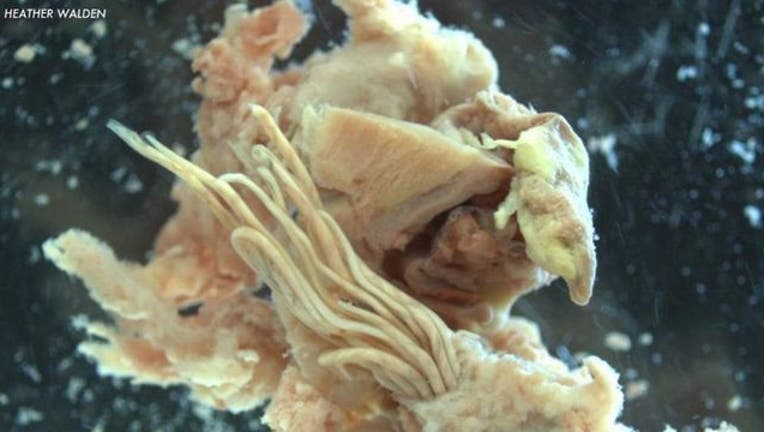'Alarming' rat lungworm parasite spreading through Florida, researchers warn

(FoxNews.com) - A parasite that can cause meningitis in humans and animals is spreading throughout the state of Florida, with health officials fearing that it may be in other areas throughout the southern U.S.
The parasitic roundworm, known as rat lungworm, is native to Hawaii and tropical locations, and while small studies have previously placed it in southern Florida, University of Florida researchers call their latest findings “alarming.”
In their study, which was published in PLoS ONE, the researchers tested rats and snails from 18 counties around the state. Samples from Hillsborough, Orange, Alachua, St. Johns and Leon all tested positive for the parasite.
“The reality is that it is probably in more counties than we found it in, and it is also probably more prevalent in the southeastern U.S. than we think,” Heather Stockdale Walden, the study’s lead author and an assistant professor in the University of Florida department of infectious disease and pathology, told the UF College of Veterinary Medicine website. “The ability for this historically subtropical nematode to thrive in a more temperate climate is alarming.”
Rat lungworm can cause severe gastrointestinal or central nervous system issues in humans and animals, including livestock or pets. According to the Centers for Disease Control and Prevention (CDC), the adult form of the parasite is only found in rodents which pass larvae of the parasite in their feces. It can be transmitted to snails and slugs that ingest the larvae.
The parasite poses a risk to humans who ingest it through eating raw or undercooked snails or slugs that are infected, or freshwater shrimp, crabs or frogs that are infected with larvae. It can also be transmitted through raw produce that contains a small snail or slug. The parasite cannot be transmitted from human-to-human, and not all who are infected fall ill from it.
However, those who do experience symptoms may develop eosinophilic meningitis and can suffer from headache, stiff neck, tingling or painful feelings in the skin, low-grade fever, nausea and vomiting. Symptoms may last from 2-8 weeks and can resolve without treatment over time, although a failure to diagnose the infection may lead to serious complications or even death, according to the CDC.
At least six human cases have been confirmed in Hawaii this year, with one newlywed requiring several operations and months of recovery. While there have not been any confirmed human cases reported in Florida, the researchers are calling for more reliable diagnostics tests and a greater awareness among physicians and veterinarians.
The CDC recommends thoroughly washing vegetables and to avoid ingesting raw or undercooked slugs or potentially contaminated produce in areas where the parasite is known to be found.
More on FoxNews.com.

